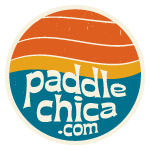The decision to transition a team from a recreational, social one to a more competitive team is often a difficult one which might be met with some resistance. Paddlers who are accustomed to showing up to an occasional practice and yet still racing with the team will perhaps struggle with the idea of being asked participate in fitness testing and to commit to a more rigorous training schedule. However, paddlers who are eager to take it up a notch will be happily challenged by the new rigors. So, how does a team go about
Whether you plan to try out for your country’s national team, or you simply want to feel stronger on the boat, training sessions are essential for your paddling development. I recently had a paddler tell me, “I feel like I’m not getting any better.” I asked, “Well, how often do you practice?” She sheepishly smiled and said, “Not that often.” I see the problem. Don’t neglect the training time off the water There is a reason we have the saying, “Practice makes perfect.” Paddling, like most things in life, doesn’t improve without
Whether you have been a lifelong athlete, or have recently found yourself getting sporty, you have likely discovered that paddling has helped improve your life in countless ways. The most obvious improvements focus on the health benefits. Paddling is great cardio, makes you stronger and more fit and can even help you lose weight. But what about the other benefits? The focus, drive and determination that it requires to advance your paddling skills don’t simply stop when you get off the boat. Being an athlete develops a discipline that transfers to all aspects of your
“Coachability.” It’s a commonly used word in sports. We all seem to have an idea of what it means. Or do we? I decided that I wanted to get specific in what coachability truly is from a coach’s perspective. Paddlers often get labeled as “coachable” or not. “Coachable” means “able to be coached,” but what qualities does a coachable paddler have? What exactly earns someone this title? There are 5 main qualities of a coachable paddler. They are: humility, drive, focus, perseverance, and trust. Humility: Let’s use “Jane” as an example. She thinks that
As a former teacher and a current coach, I have been fortunate enough to be a part of the learning process of individuals. Whether it is academic material or athletic movements, learning new things is a difficult endeavor which can be frustrating. When newbies come out to paddle for the first time, it is important for coaches and teammates to remember that for most people paddling involves completely new body movements. We grow up kicking or throwing a ball, running, jumping, etc. Not many of us were lucky enough to grow up with a paddle in
A Rookie’s Guide to The Dragon Boat World Championships in Welland: Wise Words from Veteran Paddlers
If you are a rookie to Team USA, or your own country’s national team, this guide is for you. After all of the preparation, Welland is just about in sight, which means at this point everything you’ve been doing for the last two years will soon come down to a few minutes of racing on dragon boat’s biggest stage. The physical training is tough, but practices have taken care of preparing the body. What about the other parts of World Championships – the parts that nobody tells you about? That’s
As a coach, hands down one of the most difficult things is selecting the race boat. On competitive teams, coaches spend countless hours reviewing data from fitness tests and time trials, as well as video, in order to determine what they consider to be the strongest boat. The coach’s goal is to win while creating a cohesive team that will function as one unit. If you aren’t selected for the race boat, it can be extremely disappointing and frustrating. As a coach, I have been the brunt of such frustrations. I
No one likes to sit on the bench while the rest of the team competes. Everyone wants to be in the race. So, should a racing team only consist of 20 paddlers in order to avoid having paddlers sit out? That doesn’t really make sense. Every team has some paddlers who sit out more often than they compete in races, but does this make them any less of a teammate than the race crew? Definitely not. The role of the reserve paddlers (often called subs or spares) is simply different from the
Have you ever wondered what is it like to train for hours, making sacrifices, pushing yourself to new levels while preparing yourself for the Dragon Boat World Championship? Team USA paddler Bob Mina recounts his experience. Since 2008, a morning of practice starts the night before. I have to pack three bags – one with dry clothes for the drive to work, one with the clothes I’ll change into AT work, and one with my run gear for any mid-day mileage I can fit in. I move out of the
Recently, I asked my fellow paddlers what they considered to be some of the best ways to improve one’s paddling ability. Whether you are aiming to make your local team’s boat or earn a spot on the national team, these wise words from some of the top paddlers in the USA are sure to help you up your game! 1. Listen to feedback. Be humble and open to coaching….there is always room for improving. Take your coach’s advice. Feedback is a good thing, ask the coach where you need improvement. Listen to your coach

